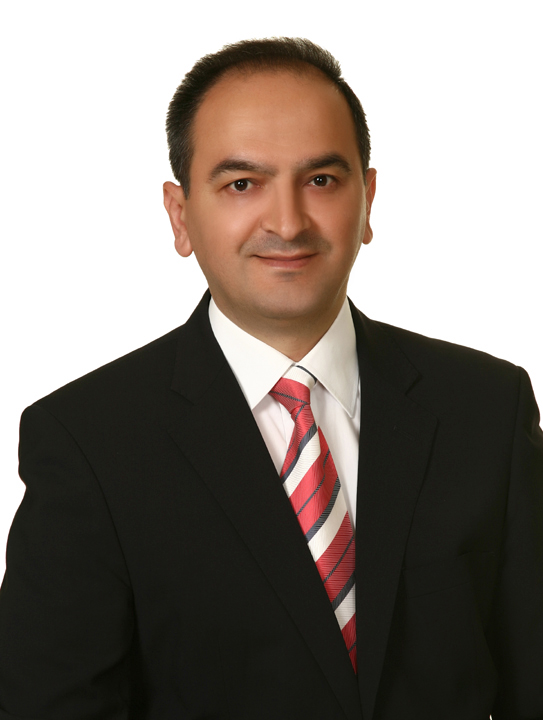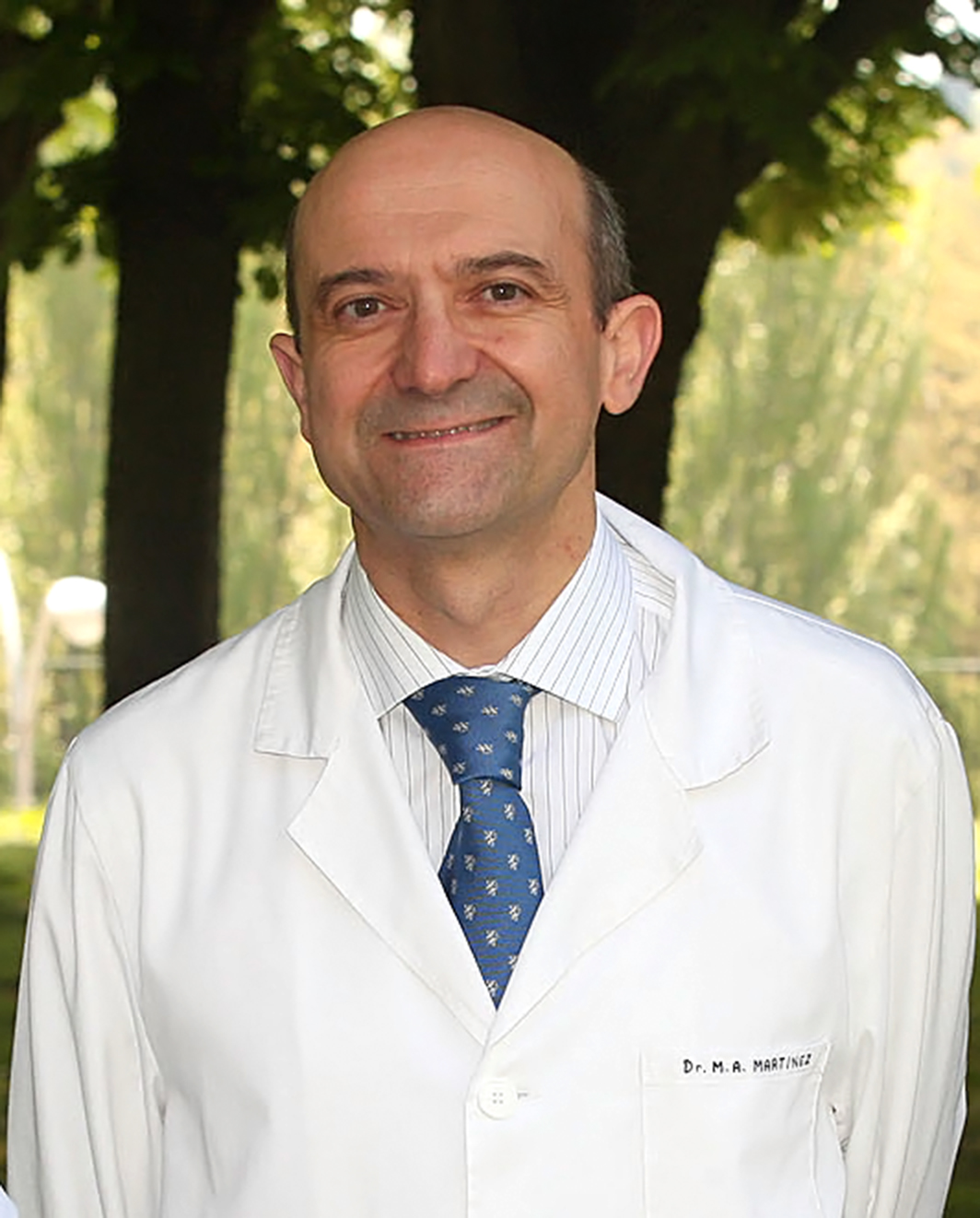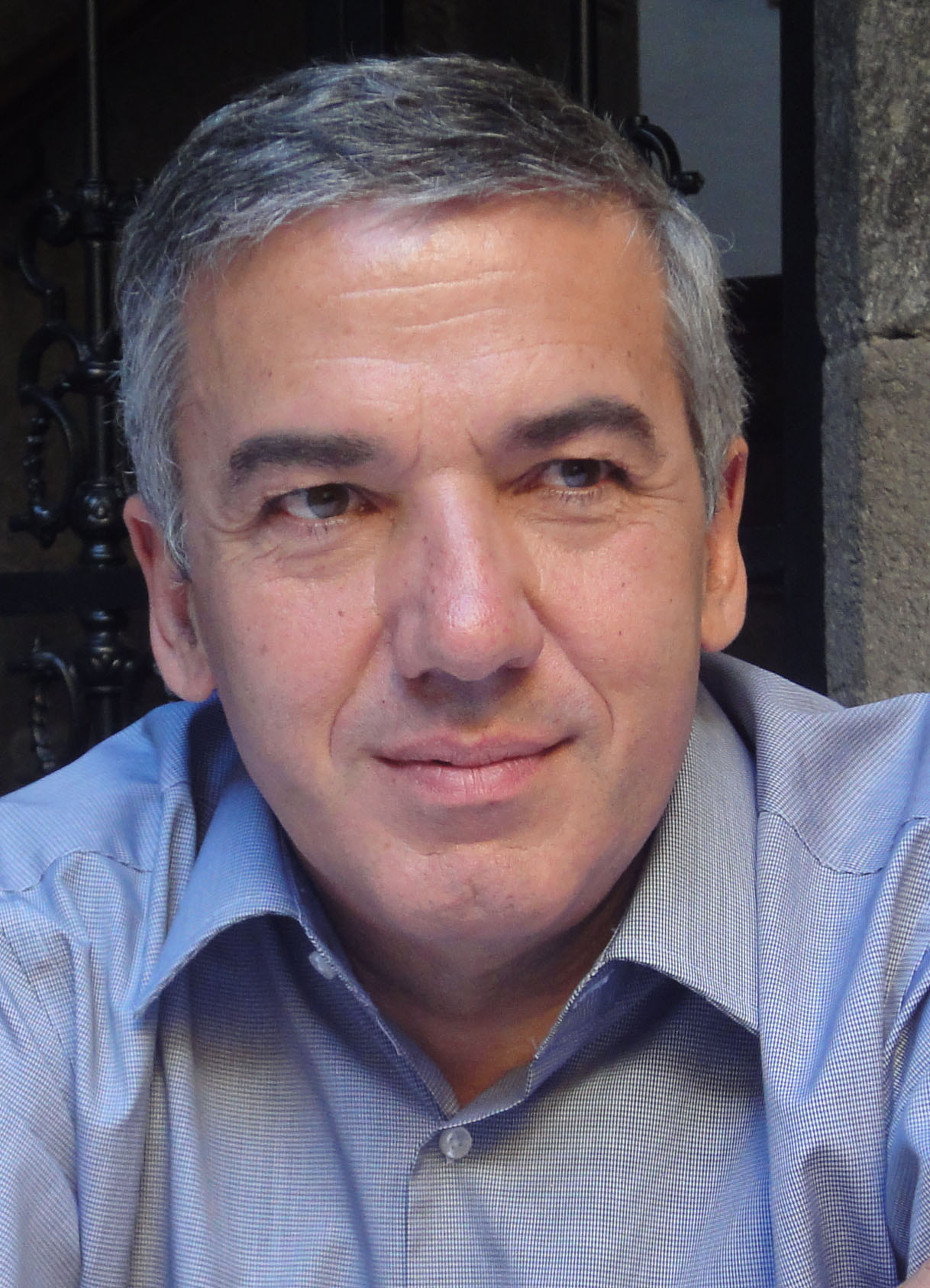Speakers
 Cesarettin Alasalvar, Associate Professor and Chief Research Scientist of the Food Institute at TÜBITAK Marmara Research Centre in Turkey. Alasalvar is a leading international researcher in bioactive components from marine resources as well as plant materials, especially tree nuts. He has co-edited a book on Tree Nuts: Phytochemicals and Health Effects. He is recognized for his impact in identifying bioactives and phytochemicals present in foods and plant-based products. He has published over 65 refereed publications and has co-edited four books. Alasalvar has been active in Institute of Food Technologists (IFT) programs for many years, and has played a leadership role in the Nutraceuticals and Functional Foods Division. He served as a past chair of the Division and serves as the editorial board member of Food Chemistry and as receiving editor of Journal of Aquatic Food Product Technology. Recently, he has received a Fellow Award from IFT. Alasalvar serves on the Expert Advisory Board of Turkish Government and Higher Education on research and development projects and as a Panelist for European Funded Projects.
Cesarettin Alasalvar, Associate Professor and Chief Research Scientist of the Food Institute at TÜBITAK Marmara Research Centre in Turkey. Alasalvar is a leading international researcher in bioactive components from marine resources as well as plant materials, especially tree nuts. He has co-edited a book on Tree Nuts: Phytochemicals and Health Effects. He is recognized for his impact in identifying bioactives and phytochemicals present in foods and plant-based products. He has published over 65 refereed publications and has co-edited four books. Alasalvar has been active in Institute of Food Technologists (IFT) programs for many years, and has played a leadership role in the Nutraceuticals and Functional Foods Division. He served as a past chair of the Division and serves as the editorial board member of Food Chemistry and as receiving editor of Journal of Aquatic Food Product Technology. Recently, he has received a Fellow Award from IFT. Alasalvar serves on the Expert Advisory Board of Turkish Government and Higher Education on research and development projects and as a Panelist for European Funded Projects.
 Genevieve Buckland is a nutritional epidemiologist from the United Kingdom. She has a Masters in Public Health Nutrition from the London School of Hygiene and Tropical Medicine, and PhD from the University of Barcelona on the Mediterranean diet and chronic diseases, based on data from the European Prospective Investigation into Cancer and Nutrition (EPIC) cohort study. She currently works at the Unit of Nutrition, Environment and Cancer, at the Catalan Institute of Oncology (ICO), Barcelona, Spain, where she continues to carry out research into topics related to the Mediterranean diet and chronic diseases, with a particular interest in gastric, breast and bladder cancer. Her more recent research has focused on investigating the relationship between olive oil and the prevention of different chronic diseases, including breast cancer, coronary heart disease and overall mortality.
Genevieve Buckland is a nutritional epidemiologist from the United Kingdom. She has a Masters in Public Health Nutrition from the London School of Hygiene and Tropical Medicine, and PhD from the University of Barcelona on the Mediterranean diet and chronic diseases, based on data from the European Prospective Investigation into Cancer and Nutrition (EPIC) cohort study. She currently works at the Unit of Nutrition, Environment and Cancer, at the Catalan Institute of Oncology (ICO), Barcelona, Spain, where she continues to carry out research into topics related to the Mediterranean diet and chronic diseases, with a particular interest in gastric, breast and bladder cancer. Her more recent research has focused on investigating the relationship between olive oil and the prevention of different chronic diseases, including breast cancer, coronary heart disease and overall mortality.
 María-Isabel Covas, MS, PhD in Biochemistry, Specialist in Clinical Chemistry is Head of the Cardiovascular Risk and Nutrition Research Group of the IMIM Institut Hospital del Mar d'Investigacions Mèdiques, Barcelona, Spain. Former Associated Professor of Biochemistry in the Medicine and Infirmary Schools of Barcelona University (1974-1983) and Deputy Head of the Clinical Laboratories from Hospital del Mar and Hospital de la Esperanza (1983-1995). Professor of the Master in Clinical Biochemistry in the Medicine School of Barcelona Autonomic University (1988-2004). Current Professor of the Master in Clinical Nutrition of Barcelona University. Her main field of work is in: Nutrition and Protective factors for Cardiovascular Disease, with special focusing in Mediterranean diet, olive oil, wine, and their phenolic compounds. Author of more than 100 papers published in international journals. Invited lecturer in national and international Congresses and Symposia. Coordinator of the Spanish Study: "Antioxidant effects of olive oil". Coordinator of the European Study: "The effect of olive oil on oxidative damage in European populations. The EUROLIVE Study (QLK1-CT-2001-00287). Area Coordinator in the PREDIMED Study (The effect of the Mediterranean diet on the primary prevention of cardiovascular disease), a Spanish Network of Excellence. Head of a Research Group in the CIBER of Fisiopatologia de la Obesidad y la Nutrición, a Spanish Network of Excellence, composed by high excellence Spanish research groups focused in Obesity and Nutrition. Member of the Scientific Board of the European Institute of Wine and Health (Institut Europeen du Vin et Santé des Regions Vitivinicoles du Sud de l´Europe, IEVSRV), Montpellier, France (1990-2002). Member of the Expert Panel « Consumption, Nutrition and Health » at the OIV (Wine and Vine International Organization (2004-2008). Award from the Spanish Association of Olive Oil Regions (AEMO) to the Excellence in Olive Oil and Health Research (2003). Award Carles Martí Heinneberg from the Spanish Danone Institute to the Excellence in Nutrition Research (2009).
María-Isabel Covas, MS, PhD in Biochemistry, Specialist in Clinical Chemistry is Head of the Cardiovascular Risk and Nutrition Research Group of the IMIM Institut Hospital del Mar d'Investigacions Mèdiques, Barcelona, Spain. Former Associated Professor of Biochemistry in the Medicine and Infirmary Schools of Barcelona University (1974-1983) and Deputy Head of the Clinical Laboratories from Hospital del Mar and Hospital de la Esperanza (1983-1995). Professor of the Master in Clinical Biochemistry in the Medicine School of Barcelona Autonomic University (1988-2004). Current Professor of the Master in Clinical Nutrition of Barcelona University. Her main field of work is in: Nutrition and Protective factors for Cardiovascular Disease, with special focusing in Mediterranean diet, olive oil, wine, and their phenolic compounds. Author of more than 100 papers published in international journals. Invited lecturer in national and international Congresses and Symposia. Coordinator of the Spanish Study: "Antioxidant effects of olive oil". Coordinator of the European Study: "The effect of olive oil on oxidative damage in European populations. The EUROLIVE Study (QLK1-CT-2001-00287). Area Coordinator in the PREDIMED Study (The effect of the Mediterranean diet on the primary prevention of cardiovascular disease), a Spanish Network of Excellence. Head of a Research Group in the CIBER of Fisiopatologia de la Obesidad y la Nutrición, a Spanish Network of Excellence, composed by high excellence Spanish research groups focused in Obesity and Nutrition. Member of the Scientific Board of the European Institute of Wine and Health (Institut Europeen du Vin et Santé des Regions Vitivinicoles du Sud de l´Europe, IEVSRV), Montpellier, France (1990-2002). Member of the Expert Panel « Consumption, Nutrition and Health » at the OIV (Wine and Vine International Organization (2004-2008). Award from the Spanish Association of Olive Oil Regions (AEMO) to the Excellence in Olive Oil and Health Research (2003). Award Carles Martí Heinneberg from the Spanish Danone Institute to the Excellence in Nutrition Research (2009).
 Carmen Dobarganes is currently Research Professor at the Department of Food Quality and Characterization of the Instituto de la Grasa (CSIC) in Seville, Spain. She obtained her Doctorate Degree in Chemistry from the University of Seville (Spain) in 1975. Since then, her main research line has focused on the chemical changes of lipids during food processing and storage with special attention to the development of advanced analytical techniques for the study of lipid oxidation. Her work is documented in more than 200 scientific publications in international journals being responsible of many national and international research projects, funded by public institutions and private companies. She was the Director of the Instituto de la Grasa from 1989 to 1992, National Representative in the IUPAC Commission on Fats, Oils and Derivatives from 1990 to 2000, Member of the American Oil Chemist Society since 1991 and Chevreul Medallist in 1997.
Carmen Dobarganes is currently Research Professor at the Department of Food Quality and Characterization of the Instituto de la Grasa (CSIC) in Seville, Spain. She obtained her Doctorate Degree in Chemistry from the University of Seville (Spain) in 1975. Since then, her main research line has focused on the chemical changes of lipids during food processing and storage with special attention to the development of advanced analytical techniques for the study of lipid oxidation. Her work is documented in more than 200 scientific publications in international journals being responsible of many national and international research projects, funded by public institutions and private companies. She was the Director of the Instituto de la Grasa from 1989 to 1992, National Representative in the IUPAC Commission on Fats, Oils and Derivatives from 1990 to 2000, Member of the American Oil Chemist Society since 1991 and Chevreul Medallist in 1997.
 Dr. Jose L. Domingo (Catalonia, Spain, 1951) is Professor of Toxicology, School of Medicine at Reus, "Rovira i Virgili" University. He is Founder and Director of the Laboratory of Toxicology and Environmental Health and also Director of TECNATOX. Associate Visiting Professor at The Johns Hopkins University (1987), sabbatical periods: Vanderbilt University, The University of Arizona-1986 (Tucson, AZ), and the University of California-Davis, CA).
Dr. Jose L. Domingo (Catalonia, Spain, 1951) is Professor of Toxicology, School of Medicine at Reus, "Rovira i Virgili" University. He is Founder and Director of the Laboratory of Toxicology and Environmental Health and also Director of TECNATOX. Associate Visiting Professor at The Johns Hopkins University (1987), sabbatical periods: Vanderbilt University, The University of Arizona-1986 (Tucson, AZ), and the University of California-Davis, CA).
Prof. Domingo has 468 peer-reviewed articles indexed in SCOPUS (h-index 40; Google: 51). He has published 15 book chapters, and more than 400 presentations at International Meetings. He has been Director of 23 Doctoral Theses (PhD). The group headed by Dr. Domingo has been/is involved in a number of scientific projects, including current EU projects.
Prof. Domingo is Editor-in-Chief of Human and Ecological Risk Assessment, Managing Editor of Food and Chemical Toxicology, Associate Editor of Environment International, and member of the Editorial Board of various international journals.
 Appointments & Expertise
1990-2011: Professor for Human Nutrition University of Vienna
1980 – 1990: Professorship University of Giessen, Germany
Member of the committee on Dietary Reference Intake (D-A-CH) for the German Speaking Countries and Central Europe
Scientific advisor to the EC Scientific Committee on Food (1995-2001), Member of Codex Alimentarius Austriacus , National Nutrition Commission, the WHO Nutrition Guidance Expert Advisory Group (NUGAG) and the International Advisory Council of WHO Global Non-communicable Disease Network (NCDnet ).
Editor-in-Chief, Annals of Nutrition and Metabolism (2000-2011) and Forum of Nutrition; Published >400 papers in international scientific journals,
Coordinator of Austrian Nutrition Reports 1998, 2003, 2008, 2012 and the European Nutrition and Health Report 2004 and 2009.
Appointments & Expertise
1990-2011: Professor for Human Nutrition University of Vienna
1980 – 1990: Professorship University of Giessen, Germany
Member of the committee on Dietary Reference Intake (D-A-CH) for the German Speaking Countries and Central Europe
Scientific advisor to the EC Scientific Committee on Food (1995-2001), Member of Codex Alimentarius Austriacus , National Nutrition Commission, the WHO Nutrition Guidance Expert Advisory Group (NUGAG) and the International Advisory Council of WHO Global Non-communicable Disease Network (NCDnet ).
Editor-in-Chief, Annals of Nutrition and Metabolism (2000-2011) and Forum of Nutrition; Published >400 papers in international scientific journals,
Coordinator of Austrian Nutrition Reports 1998, 2003, 2008, 2012 and the European Nutrition and Health Report 2004 and 2009.
 Professor Ramon Estruch is currently Senior Consultant at the Internal Medicine Department of the Hospital Clinic (Barcelona) from 2002. He is also Associate Professor in the School of Medicine at the Barcelona University from 1996.
Professor Ramon Estruch is currently Senior Consultant at the Internal Medicine Department of the Hospital Clinic (Barcelona) from 2002. He is also Associate Professor in the School of Medicine at the Barcelona University from 1996.
The main research lines developed are the following: 1) Effects of chronic alcohol consumption on heart, liver and brain; 2) Cardiovascular effects of Mediterranean diet; 3) Mechanisms of the effects of moderate wine and beer consumption: Effects on the expression and function of cellular and endothelial adhesion molecules related to development of atherosclerosis; 3) Effects of different alcoholic beverages on immune system; 4) Effects of olive oil, nuts and cocoa in lipid profile and inflammatory biomarkers related to atherosclerosis.
In the last years, his group has received grants from the European Commission, National Institute of Health (NIH) from USA, CICYT, Instituto Nacional de Investigación Agroalimentaria (INIA) del Ministerio de Educación y Ciencia, Fondo de Investigación Sanitaria (FIS) and Instituto de Salud Carlos III del Ministerio de Sanidad (ISCIII). In addition, Prof. Estruch is the leader of the Thematic Network “Mediterranean Diet and Cardiovascular Disease” from the ISCIII (Spain).
Twenty years ago we started a research program on the toxic effect of alcohol on cardiovascular (N Engl J Med 1989, Ann Intern Med 1994; JAMA 1995, Arch Inter Med 1995) and central nervous systems (Arch NeUrol.1995; Ann Neurol.1997). At 1994, a new research program on effects of key foods (alcoholic beverages) on atherosclerosis started. First, we analyzed the effects of alcoholic beverages on adhesion molecules related with the development of atherosclerosis (Alcohol Clin Exp Res 1998 and 1999; Thromb Haemost 2002). Moderate consumption of red wine reduces serum inflammatory markers related to atherosclerosis (Atherosclerosis 2004), ex-vivo adhesion of human monocytes on an endothelial line (Am J Clin Nutr 2004) and oxidative stress parameters (Nutr Metab Cardiovasc Dis. 2010). Finally, in 2003, we have started an ambitious study (PREDIMED) to evaluate the effects of a Mediterranean Diet and its main components on the primary prevention of cardiovascular disease in high-risk patients, which have enrolled near 7.500 patients. The study finished at the end of 2011 and their main results have been published in top journals, including Ann Intern Med (2006), Arch Intern Med (2007 and 2008), Am J Clin Nutr (2009), J Nutr (2010), Diabetes Care (2011), PloS One (2012) and N Engl J Med 2013.
All these studies are being performed in collaboration with foreign universities such as: Columbia University in New York, Loma Linda University in California, Harvard School of Public Health in Massachusetts, Human Nutrition Research Centre in Tufts University, Massachusetts, USA and Mario Negri Sud, Santa Maria d’Imbaro, Italy.
 Dr. Penny Kris-Etherton is Distinguished Professor of Nutrition in the Department of Nutritional Sciences at The Pennsylvania State University, where she has been on the faculty since 1979.
Dr. Penny Kris-Etherton is Distinguished Professor of Nutrition in the Department of Nutritional Sciences at The Pennsylvania State University, where she has been on the faculty since 1979.
Dr. Kris-Etherton’s research expertise is cardiovascular nutrition. She conducts controlled clinical nutrition studies designed to evaluate the role of diet on risk factors for cardiovascular disease (CVD). These studies have evaluated established and emerging CVD risk factors including lipids, lipoproteins, blood pressure, inflammatory markers, measures of oxidative stress and adhesion molecules. Her research integrates clinical and basic research to evaluate underlying mechanisms that account for the diet-induced clinical responses, including the molecular mechanisms of action. Dr. Kris-Etherton embraces interdisciplinary research that integrates the expertise of many colleagues.
Dr. Kris-Etherton has served on many national committees that have established dietary guidelines and recommendations. She served on the 2nd Adult Treatment Panel of the National Cholesterol Education Program, the Dietary Reference Intakes for Macronutrients Committee of the National Academies, the HHS/USDA Dietary Guidelines Advisory Committee 2005, and the Nutrition Committee of the American Heart Association that published diet and lifestyle recommendations for the prevention and treatment of CVD. She is a Fellow of the American Heart Association as well as The National Lipid Association, and the recipient of many awards including the Kritchevsky Career Achievement Award from the American Society of Nutrition (2012), the Marjorie Hulsizer Copher Award from the American Dietetic Association (2007), the Elaine Monsen Research Award from the American Dietetic Association Foundation (2005), the Foundation Award for Excellence in Research by the American Dietetic Association (1998), and the Lederle Award for Human Nutrition Research awarded by the American Society for Nutritional Sciences (1991). She was President of the National Lipid Association (2011-2012) and Chair of the Medical Nutrition Council of The American Society for Nutrition (2010-2012). Dr. Kris-Etherton has published over 270 scientific papers, 30 book chapters and co-authored 4 books.
 Mariette Gerber has an M.D. from the Toulouse University, a Science Doctorate from the University of Montpellier both in France and a Ph.D from the University of Health_Sciences-Chicago Medical School in the USA where she then had teaching and research activities. Back in France, she was the Head of a research group in nutritional epidemiology and prevention of cancer in the Cancer Research Centre in Montpellier. Nutritional prevention focused on Mediterranean diet. She authored more than 120 scientific articles in international peer-reviewed journals, 1book devoted to general public on Mediterranean diet in French and a reference one on the scientific and public health aspects of Mediterranean diet in English with an English colleague.
She participated in several experts groups, including WHO, FAO and IARC and was President of the French Nutrition Society. She is currently expert at the French Food Safety Agency, was called at the French National Food Council by the Health Ministry.
Mariette Gerber has an M.D. from the Toulouse University, a Science Doctorate from the University of Montpellier both in France and a Ph.D from the University of Health_Sciences-Chicago Medical School in the USA where she then had teaching and research activities. Back in France, she was the Head of a research group in nutritional epidemiology and prevention of cancer in the Cancer Research Centre in Montpellier. Nutritional prevention focused on Mediterranean diet. She authored more than 120 scientific articles in international peer-reviewed journals, 1book devoted to general public on Mediterranean diet in French and a reference one on the scientific and public health aspects of Mediterranean diet in English with an English colleague.
She participated in several experts groups, including WHO, FAO and IARC and was President of the French Nutrition Society. She is currently expert at the French Food Safety Agency, was called at the French National Food Council by the Health Ministry.
 Educated at Oxford University, Dr. Jenkins is currently a professor in both the Departments of Medicine and Nutritional Sciences, Faculty of Medicine, University of Toronto, a staff physician in the Division of Endocrinology and Metabolism and the Director of the Clinical Nutrition and Risk Factor Modification Center, St. Michael's Hospital. He has served on committees in Canada and the United States that have formulated nutritional guidelines for the treatment of diabetes and most recently recommendations for fibre and macronutrient intake for the general population under the new joint United States-Canada DRI system (RDAs) of the National Academy of Sciences (Washington, DC). His team was the first to define and explore the concept of the glycemic index of foods and demonstrate the breadth of metabolic effects of viscous soluble fiber, including blood glucose and cholesterol lowering. His studies on combining cholesterol lowering food components (dietary portfolio) have been recognized as creating an effective dietary alternative to drug therapy (statins) for many people and was the only dietary approach referenced in the Current Guidelines of the US National Cholesterol Education Program (ATP III). He has received many National and International awards in recognition of his contribution to nutrition research. He believes that diets have to be palatable and more readily available to encourage dietary adherence, equally they have to be environmentally sustainable.
Educated at Oxford University, Dr. Jenkins is currently a professor in both the Departments of Medicine and Nutritional Sciences, Faculty of Medicine, University of Toronto, a staff physician in the Division of Endocrinology and Metabolism and the Director of the Clinical Nutrition and Risk Factor Modification Center, St. Michael's Hospital. He has served on committees in Canada and the United States that have formulated nutritional guidelines for the treatment of diabetes and most recently recommendations for fibre and macronutrient intake for the general population under the new joint United States-Canada DRI system (RDAs) of the National Academy of Sciences (Washington, DC). His team was the first to define and explore the concept of the glycemic index of foods and demonstrate the breadth of metabolic effects of viscous soluble fiber, including blood glucose and cholesterol lowering. His studies on combining cholesterol lowering food components (dietary portfolio) have been recognized as creating an effective dietary alternative to drug therapy (statins) for many people and was the only dietary approach referenced in the Current Guidelines of the US National Cholesterol Education Program (ATP III). He has received many National and International awards in recognition of his contribution to nutrition research. He believes that diets have to be palatable and more readily available to encourage dietary adherence, equally they have to be environmentally sustainable.
 Dr. La Vecchia received his medical degree from the University of Milan and a master of science degree in clinical epidemiology from Oxford University. He is recognized worldwide as a leading authority in cancer etiology and epidemiology. Presently, he is Chief of Epidemiology at the Mario Negri Institute in Milan, Italy and Professor of Epidemiology at the School of Medicine at the University of Milan. Dr. La Vecchia serves as an editor for numerous clinical and epidemiologic journals. He is among the most renowned and productive epidemiologists in the field with over 1,680 peer-reviewed papers in the literature and is among the most highly cited medical researchers in the world, according to ISIHighlyCited.comsm, the developer and publisher of the Science Citation Index. Dr. La Vecchia is an Adjunct Professor of Medicine at Vanderbilt Medical Center and the Vanderbilt-Ingram Cancer Center and of Epidemiology at the University of Lausanne, CH.
Dr. La Vecchia received his medical degree from the University of Milan and a master of science degree in clinical epidemiology from Oxford University. He is recognized worldwide as a leading authority in cancer etiology and epidemiology. Presently, he is Chief of Epidemiology at the Mario Negri Institute in Milan, Italy and Professor of Epidemiology at the School of Medicine at the University of Milan. Dr. La Vecchia serves as an editor for numerous clinical and epidemiologic journals. He is among the most renowned and productive epidemiologists in the field with over 1,680 peer-reviewed papers in the literature and is among the most highly cited medical researchers in the world, according to ISIHighlyCited.comsm, the developer and publisher of the Science Citation Index. Dr. La Vecchia is an Adjunct Professor of Medicine at Vanderbilt Medical Center and the Vanderbilt-Ingram Cancer Center and of Epidemiology at the University of Lausanne, CH.
Dr. La Vecchia is a temporary advisor at the International Agency for Research on Cancer IARC/WHO and at the World Health Organization in Geneva, and a registered journalist in Milan. He was Adjunct Associate Professor of Epidemiology at Harvard School of Public Health between 1996 and 2001.
Dr. La Vecchia's main fields of interest include cancer epidemiology and the risk related to diet, tobacco, oral contraceptive use and occupational or environmental exposure to toxic substances; and analysis of temporal trends and geographical distribution of mortality from cancer, cardiovascular diseases, perinatal and other selected conditions.
Miguel Ángel Martínez-González
 CURRENT POSITIONS
CURRENT POSITIONS
1999- Principal Investigator "The SUN Proyect" (epidemiological cohort with - 21,000 participants)
2005- Full Professor Preventive Medicine, National Habilitation (University of Málaga, December 2005)
2000- Professor and Chair, Dpt. Preventive Medicine & P. Health, Navarra University, Spain
2007- Coordinator Spanish Research Network 06/0045 "Healthy Eating and Chronic Disease (PREDIMED)"
Selected books
Martínez González MA, et al. Bioestadística amigable, 2ªed. Diaz de Santos.
Martínez González MA, etal. Conceptos de salud pública y estrategias preventivas. Elsevier, 2012.
 Dariush Mozaffarian
Dariush Mozaffarian
Is a cardiologist and epidemiologist; Co-Director of the Program in Cardiovascular Epidemiology (www.hsph.harvard.edu/research/cvdepi/); Associate Professor in the Division of Cardiovascular Medicine, Brigham and Women’s Hospital and Harvard Medical School; and Associate Professor in the Department of Epidemiology at the Harvard School of Public Health. His research focuses on the effects of lifestyle, particularly diet, on cardiovascular health and disease. Dariush Mozaffaria
Dr. Mozaffarian has authored or co-authored nearly 200 scientific publications on lifestyle and cardiovascular health, including on global dietary burdens of disease, omega-3 fatty acids, trans fatty acids, diets and weight gain, and healthy dietart patterns. He has served on numerous committees and advisory boards, including for the World Health Organization, United Nations Food and Agriculture Organization, American Heart Association, Canadian government, and Chicago Council on Global Affairs. He chairs the 2010 Global Burden of Diseases Nutrition and Chronic Diseases Expert Group.
A Fellow of the American College of Cardiology and a Fellow of the American Heart Association, Dr. Mozaffarian received a BS in biological sciences from Stanford (with Honors, Phi Beta Kappa), an MD from Columbia (Alpha Omega Alpha), an MPH from University of Washington, and a Doctorate in Epidemiology from Harvard. He is board-certified in Cardiovascular Medicine and is clinically active on the cardiology service at Brigham and Women’s Hospital.
Brief version:
Dariush Mozaffarian is a cardiologist and epidemiologist; Co-Director of the Program in Cardiovascular Epidemiology (www.hsph.harvard.edu/research/cvdepi/); and Associate Professor of Medicine and Epidemiology in the Division of Cardiovascular Medicine, Brigham and Women’s Hospital and Harvard Medical School; and Department of Epidemiology, Harvard School of Public Health. Dr. Mozaffarian holds a BS in biological sciences from Stanford (with Honors, Phi Beta Kappa), an MD from Columbia (Alpha Omega Alpha), an MPH from University of Washington, and a Doctorate in Epidemiology from Harvard. His research focuses on effects of lifestyle, particularly diet, on cardiovascular health and disease in the US and globally. Dr. Mozaffarian has authored or co-authored nearly 200 scientific publications on lifestyle and cardiovascular health, including on global dietary burdens of disease, fish and omega-3 fats, trans fats, diets and weight gain, and healthy diet patterns. He has served on numerous committees and advisory boards, including for the World Health Organization, United Nations Food and Agriculture Organization, and American Heart Association.
 Director of the Lipid Clinic and Senior Consultant, Endocrinology and Nutrition Service, Hospital Clínic, C. Villarroel, 170, 08036 Barcelona, Spain.
Director of the Lipid Clinic and Senior Consultant, Endocrinology and Nutrition Service, Hospital Clínic, C. Villarroel, 170, 08036 Barcelona, Spain.
Graduated in Medicine (University of Barcelona, 1968), PhD in Medicine (University of
Barcelona 1991), Specialist in Internal Medicine (American Board of Internal Medicine, New
York 1972) and Gastroenterology (American Board of Internal Medicine, subspecialty
Gastroenterology, Boston 1974).
Postgraduate training in USA (New York and Boston, 1970-1975).
Research Fellowship at the Biophysics Dept., Boston University, 1975-1976. Research in
biliary physiology.
Member, founder and ancient vicepresident of the Spanish Atherosclerosis Society (SEA).
Member of the European Atherosclerosis Society (EAS) and International Atherosclerosis
Society (IAS).
Past president of the Ibero American Atherosclerosis Society.
Member of the Scientific Advisory Board of the California Walnut Commission from 2001 and
Flora Institute (Unilever) from 2002.
Chairman of the Scientific Committee, 74th Congress of the European Atherosclerosis Society,
2004.
Advisory Boards: Amgen, Pfizer, Merck, Roche.
Founder and ancient editor of Clín Invest Arterioscler, official journal of SEA.
First Editor, British Journal of Nutrition.
Editorial Board, Metabolism
He has received numerous research grants and awards from public and private agencies.
He has published 180 original papers in peer-reviewed journals with impact factor (total IF
1085.5), 26 original papers in other journals, 112 review papers, 22 editorials and 82 chapters
in medical and scientific textbooks. He has been editor/director of 9 medical books/scientific
supplements. He has been speaker at many scientific conferences and has directed 5 PhD
theses. He has been professor at many postgraduate courses on lipid metabolism and
atherosclerosis. He has a more than 20-year experience in clinical trials with antiatherosclerotic
diets, foods and drugs.
Actual research interests in nutrition (leadership of the PREDIMED study of nutritional
intervention for primary cardiovascular prevention), plant sterols, blood membrane fatty acids,
genetic dyslipidemias, cardiovascular risk assessment and vascular imaging techniques.
 Joan Sabaté is Professor and Chair of the Department of Nutrition at Loma Linda University's School of Public Health. From Spain, Dr. Sabaté is a board certified physician in internal medicine. In 1989 he obtained the degree of Doctor of Public Health in nutrition from Loma Linda University and became an assistant professor in the Department of Nutrition. In 1997 he became the Chair of the Department.
Joan Sabaté is Professor and Chair of the Department of Nutrition at Loma Linda University's School of Public Health. From Spain, Dr. Sabaté is a board certified physician in internal medicine. In 1989 he obtained the degree of Doctor of Public Health in nutrition from Loma Linda University and became an assistant professor in the Department of Nutrition. In 1997 he became the Chair of the Department.
Dr. Sabaté was principal investigator in the study that directly linked the consumption of walnuts to significant reductions in blood serum cholesterol. His landmark findings were published in the New England Journal of Medicine and received the attention of nearly 400 media sources, both national and international. Bringing the research full circle Archives of Internal Medicine has recently published the findings of his pooled analysis of 25 intervention trials establishing the benefits of nut consumption on blood lipid levels and lowering the risk of heart disease.
Dr. Sabaté is frequently asked to speak at scientific symposia as well as health and nutrition conferences throughout the United States, Europe and Asia. He has authored over 100 peer-reviewed articles in scientific journals and is the editor of the reference book Vegetarian Nutrition published by CRC Press. He is currently serving on the USDA Expert Panel on Dietary Food Patterns.
 Lluís SERRA-MAJEM (Barcelona 1959) is MD with a PhD in Nutrition, specialising in Preventive Medicine and Public Health. In 1995 he became Full Professor of Preventive Medicine & Public Health at the University of Las Palmas de Gran Canaria, where he also holds the UNESCO Chair for Research, Planning and Development of Health Systems as well as serving as the Director of the Department of Clinical Sciences until 2010. Since 1997 he has been director of the Nutrition Research Foundation, University of Barcelona Science Park. He is also president and founder of the NGO Nutrition without Borders, and since 2009 he has been the president of the Spanish Academy of Nutrition and Food Sciences. From 1996 to 2012 he has been the Mediterranean Diet Foundation President and took a leadership role in promoting the recognition by the UNESCO of the Mediterranean Diet as Intangible Cultural Heritage. Author of more than 700 research papers and book chapters, he plays a leading role in both Public Health Nutrition and Mediterranean Diet at a global scale
Lluís SERRA-MAJEM (Barcelona 1959) is MD with a PhD in Nutrition, specialising in Preventive Medicine and Public Health. In 1995 he became Full Professor of Preventive Medicine & Public Health at the University of Las Palmas de Gran Canaria, where he also holds the UNESCO Chair for Research, Planning and Development of Health Systems as well as serving as the Director of the Department of Clinical Sciences until 2010. Since 1997 he has been director of the Nutrition Research Foundation, University of Barcelona Science Park. He is also president and founder of the NGO Nutrition without Borders, and since 2009 he has been the president of the Spanish Academy of Nutrition and Food Sciences. From 1996 to 2012 he has been the Mediterranean Diet Foundation President and took a leadership role in promoting the recognition by the UNESCO of the Mediterranean Diet as Intangible Cultural Heritage. Author of more than 700 research papers and book chapters, he plays a leading role in both Public Health Nutrition and Mediterranean Diet at a global scale
 Professor Iris Shai from Ben Gurion University, Israel, is a researcher in the field of nutrition and chronic diseases. Her main focuses are randomized controlled dietary intervention trials and long-term cohorts with wide international collaboration. Following her fellowship in Harvard School of Public Health, she performed, with her colleagues, the Dietary Intervention Randomized Controlled Trial (DIRECT) addressing the long-term effect and safety of various dietary strategies on biomarkers and plaque regression. In the past 7 years she leaded 3 papers published in New England Journal of Medicine and further high impact journals dealing with the effect of diet and primary prevention on Health. Currently, with her colleagues, she is completing the 2-year Cardiovascular Diabetes and Ethanol (CASCADE) RCT study.
Professor Iris Shai from Ben Gurion University, Israel, is a researcher in the field of nutrition and chronic diseases. Her main focuses are randomized controlled dietary intervention trials and long-term cohorts with wide international collaboration. Following her fellowship in Harvard School of Public Health, she performed, with her colleagues, the Dietary Intervention Randomized Controlled Trial (DIRECT) addressing the long-term effect and safety of various dietary strategies on biomarkers and plaque regression. In the past 7 years she leaded 3 papers published in New England Journal of Medicine and further high impact journals dealing with the effect of diet and primary prevention on Health. Currently, with her colleagues, she is completing the 2-year Cardiovascular Diabetes and Ethanol (CASCADE) RCT study.
 Professor Linda Tapsell is a leading research dietitian from the University of Wollongong, Australia. With her research teams she has lead many studies into the role of food in the prevention and management of the lifestyle related disease, and has published widely on the effects food consumption and dietary patterns on health. She directs research centres in food, nutrition and health, and works continuously with national and international research agencies in food and nutrition. Recently this has included the Australian Dietary Guidelines working group and the chair of the scientific program of the International Congress of Dietetics. Professor Tapsell is a Fellow of the Dietitians Association of Australia and a well respected research leader in the field of Nutrition and Dietetics.
Professor Linda Tapsell is a leading research dietitian from the University of Wollongong, Australia. With her research teams she has lead many studies into the role of food in the prevention and management of the lifestyle related disease, and has published widely on the effects food consumption and dietary patterns on health. She directs research centres in food, nutrition and health, and works continuously with national and international research agencies in food and nutrition. Recently this has included the Australian Dietary Guidelines working group and the chair of the scientific program of the International Congress of Dietetics. Professor Tapsell is a Fellow of the Dietitians Association of Australia and a well respected research leader in the field of Nutrition and Dietetics.

